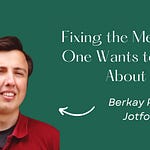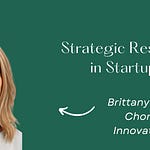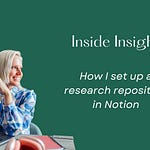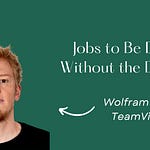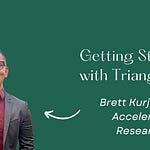Listen now on Apple, Spotify, and YouTube.
—
Loren is a UX Researcher with over 8 years of experience designing user-centered financial solutions. She’s passionate about uncovering actionable insights that bridge user needs with business objectives, and specializes in transforming complex behaviors into strategies that elevate digital experiences. Loren currently works at JPMorgan Chase as a Lead UX Researcher for digital commerce solutions. Over her time at Chase she has worked across several organizations, getting to know a wide variety of customer-facing and employee-facing products and services giving her a unique insight into how the customer views Chase as a whole.
Kathryn is a behavioral neuroscientist with experience in consumer research and methodological innovation. She earned her Bachelors in Neuroscience and Business from Muhlenberg College and her Masters in Behavioral and Decision Sciences at the University of Pennsylvania. She currently works at JP Morgan Chase as a User Researcher, with a focus on methodological development, infusing behavioral science and design thinking into the customer experience.
In our conversation, we discuss:
What end-to-end research actually means in practice and why it starts before users ever touch your product.
How to use habit loops to map and influence real customer behavior without forcing change.
The power of live account interviews for breaking out of prototype fantasyland.
Strategies for building alignment and shifting stakeholders from “I need” to “we’re solving.”
How internal playbooks, role-play exercises, and empathy maps help teams stay grounded in real life.
Some takeaways:
End-to-end research isn’t just a longer study, but a wider lens. Loren and Kathryn define end-to-end research as everything from a customer’s initial intent to what happens after they close the product. It’s not just about usability or funnel drop-off, but about how their lives influence how they interact with your product. To get real insight, you have to look outside the interface and understand what’s happening before, during, and after each interaction. That kind of zoomed-out context changes the questions you ask and the recommendations you make.
Customers don’t live inside your product and they won’t change their habits for you. Many organizations build with the assumption that users will adapt. They won’t. Through live account research, Loren uncovered how users ignore offers, stick to their routines, and reject anything that adds complexity. Kathryn explains how habit loops (cue → routine → reward) help teams understand why users behave the way they do, and why your product needs to slot into existing routines, not disrupt them.
Usability labs are structured, focused, and quiet. Real life is not. That’s why live account research can be so powerful; users bring their own data, context, and mess. Watching someone navigate a real account reveals things no A/B test or journey map ever could, especially when paired with tools like empathy maps that capture what people are saying, doing, thinking, and feeling.
To build cross-team alignment, make the customer the common ground. When products span multiple teams, priorities clash. Loren uses design rationale briefs and vision statements to realign teams around what the customer wants, not just what each team needs. Kathryn emphasizes the importance of shared language and moving from “I need” to “we’re building.” Getting people into the same room, physically or virtually, and grounding them in the customer’s perspective is what turns politics into partnership.
If you want teams to understand context, you have to simulate real life. Kathryn runs role-playing workshops where stakeholders juggle real-life distractions while interacting with a product. It’s a reminder that customers are busy, stressed, and multitasking, and your product has to work under those conditions. Loren adds that this mindset shift helps counter the overconfidence teams can get from testing in perfect research environments. Their advice: don’t just study what customers say, watch what they actually do in the wild.
Where to find Loren:
Where to find Kathryn:
Stop piecing it together. Start leading the work.
The Everything UXR Bundle is for researchers who are tired of duct-taping free templates and second-guessing what good looks like.
You get my complete set of toolkits, templates, and strategy guides. used by teams across Google, Spotify, , to run credible research, influence decisions, and actually grow in your role.
It’s built to save you time, raise your game, and make you the person people turn to—not around.
→ Save 140+ hours a year with ready-to-use templates and frameworks
→ Boost productivity by 40% with tools that cut admin and sharpen your focus
→ Increase research adoption by 50% through clearer, faster, more strategic delivery
Interested in sponsoring the podcast?
Interested in sponsoring or advertising on this podcast? I’m always looking to partner with brands and businesses that align with my audience. Book a call or email me at nikki@userresearchacademy.com to learn more about sponsorship opportunities!
The views and opinions expressed by the guests on this podcast are their own and do not necessarily reflect the views, positions, or policies of the host, the podcast, or any affiliated organizations or sponsors.




